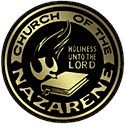Prayer for the Day
Two of the most important phrases in any language are "Thank you" and "I'm sorry". All our relationships depend on the ability to say them and mean them.
No action is too small for a "thank you". When we don't give it, we treat others as tools.
None of us is too important to say sorry. We should say it to our children when we're wrong; it shows humanity, - and humility.
Saying sorry is on the minds of Jewish people because Saturday was the Day of Atonement.
If apologising is hard, forgiving is even harder. I don't believe in 'forgiven and forgotten'. The mind doesn't work like that; we remember plenty of things we wish we didn't. Equally, there are many matters in any human life, and in history, which mustn't be forgotten. Forgetfulness condemns us to repetition, of our worst mistakes and greatest atrocities.
At the heart of forgiveness is the ability to let go of anger and bitterness. That's why, as Judaism teaches, we can only forgive wrongs done to ourselves. Otherwise, forgiveness is a meaningless word.
That still leaves plenty for us to do. We all bear wounds, inflicted by other people or by life itself. Do we nurse thoughts of vengeance? Or do we try to accept and comprehend, or even enter in imagination into the minds of those who hurt us and, without justifying their deeds, ask "Why?"
I admire those who use their very wounds to create understanding and healing, like those bereaved Israeli and Palestinian parents whose grief has brought them together. They don't forget, or romantically forgive. They listen and strive for peace.
God, give us the courage to make our hurts our teachers.
Jonathan Wittenberg Radio 4

